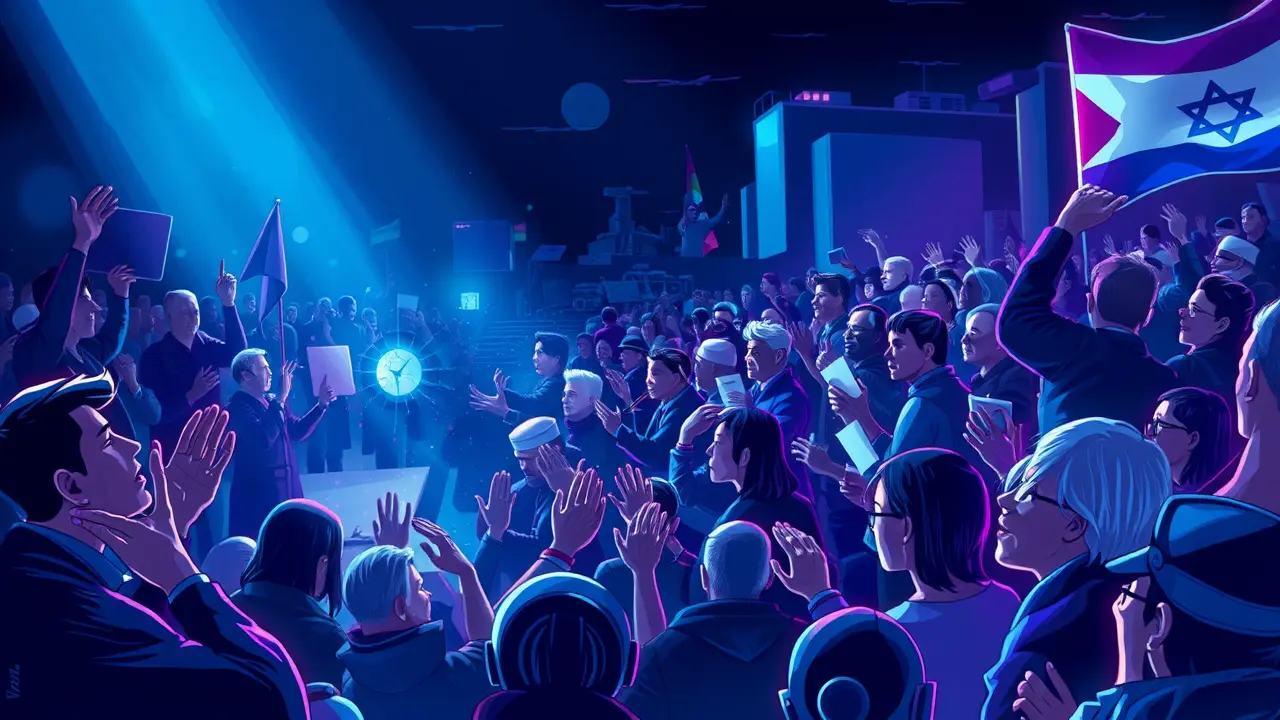Emotional Scenes as Hamas Releases Israeli Hostages
A palpable wave of raw, unfiltered emotion swept through Hostages Square, a place that for over two years had been a somber epicenter of vigil and desperate hope, as the first confirmed reports of releases began to filter through the crowd. This was not merely a political transaction or a line item in a ceasefire agreement; this was the fracturing of a two-year-long nightmare for families who had marked birthdays, holidays, and anniversaries with empty chairs at their tables.The scenes were visceral, a stark contrast to the anguish that had previously defined this space. Grown men, their faces etched with the strain of a seemingly endless wait, wept openly, their sobs mingling with the rising chorus of songs and prayers.Elderly parents, who had clung to fading photographs as their last tether to their children, stood trembling, their relief so profound it seemed to physically alter the air around them. For these families, the conflict had been distilled into a single, agonizing question mark, and today, finally, that mark was being replaced, person by person, with a period.The ceasefire, brokered through painstaking and fragile negotiations, offered a temporary reprieve, a gulp of air for a region suffocated by relentless violence. In Gaza, the silence that replaced the drone of drones and the crump of artillery was itself a sound of profound relief, allowing civilians to venture out from rubble to search for basic sustenance and assess the staggering scale of destruction.Yet, this moment of human reclamation exists within a complex and volatile geopolitical landscape. The release of these hostages, while a monumental humanitarian victory, is a single chapter in a much longer, bloodier narrative.Analysts are already weighing the potential consequences: will this temporary halt in hostilities build the necessary trust for a more durable peace, or will it simply be a tactical pause that allows both sides to rearm and regroup? The political fallout within Israel is immediate and fierce, with the government facing scrutiny from all sides—from those who see any negotiation with Hamas as a dangerous precedent to those who argue not enough was done sooner. The psychological toll on the returning hostages is incalculable; their journey of reintegration into a society that has been fundamentally shaped by their absence will be long and fraught with challenges, requiring immense support and sensitivity.This event, therefore, is not an end but a critical inflection point, a fragile moment where human joy and geopolitical calculation collide, holding within it the seeds of either a path toward de-escalation or a return to the devastating status quo that created this crisis in the first place. The world watches, holding its breath, hoping that the overwhelming power of this human reunion can, for once, outweigh the entrenched forces of conflict.
CH
Chloe Bennett123k2 days ago
watching those families finally get some relief after all this time makes my heart feel so full, it's about the people not the politics for once
0
